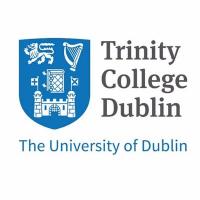Digital Humanities and Culture (M.Phil.)
Many of the biggest questions in our world today can only be answered by drawing on knowledge of both culture and technology. Trinity’s MPhil in Digital Humanities and Culture prepares its students to take on these questions in a wide variety of contexts, whether they want to deepen their understanding of a humanities subject through data mining and visualisation; explore the virtual transmission of culture and heritage by and beyond museums, libraries and archives; or join the movement to make technology development more humane.
In the digital humanities, researchers trained in history, literature, languages, the arts, computer science and engineering combine their skills to transform our understanding of the world. They also develop the technological capacity to drive forward our ability to see patterns in human behaviours and how humans describe their experiences. What sets apart our course from other Digital Humanities courses is the equal emphasis we place on what technology can do for humanities research, and what humanities research can do to promote the rise of human-centred technology design. We also use the established collaborations across our disciplines and with our library and technical support colleagues to deliver a unique educational experience. The flow of challenges, knowledge and techniques between students and staff in the course from diverse backgrounds creates many unexpected and transformative opportunities to grow our understanding of the world.
Whether your background is in in the humanities, arts, information management, cultural heritage or computer science, the MPhil in Digital Humanities and Culture will give you the skills to:
• Apply cutting-edge methods to interrogate the most fundamental questions of literature, history and the arts.
• Deepen your understanding of cultural practices and tensions in the digital age.
• Build your own digital projects, honing your existing Information and Communication Technology (ICT) skills and gaining new ones.
• Experience how a professional organisation manages the impact of technology on culture in an internship setting.
• Work and learn alongside the members of the many active research project teams of the Trinity Centre for Digital Humanities.
Intakes
- Jan
- Sep
Application Processing Time in Days: 30
Minimum English Language Requirements
| English Level Description | IELTS (1.0 -9.0) | TOEFL IBT (0-120) | TOEFL CBT (0-300) | PTE (10-90) | |
|---|---|---|---|---|---|
| Expert | 9 | 120 | 297-300 | 86-90 | |
| Very Good | 8.5 | 115-119 | 280-293 | 83-86 | |
| Very Good | 8 | 110-114 | 270-280 | 79-83 | |
| Good | 7.5 | 102-109 | 253-267 | 73-79 | |
| Good | 7 | 94-101 | 240-253 | 65-73 | |
| Competent | 6.5 | 79-93 | 213-233 | 58-65 | |
| Competent | 6 | 60-78 | 170-210 | 50-58 | |
| Modest | 5.5 | 46-59 | 133-210 | 43-50 | |
| Modest | 5 | 35-45 | 107-133 | 36-43 | |
| Limited | 4 | 32-34 | 97-103 | 30-36 | |
| Extremely Limited | < 4 | < 31 | < 93 | < 30 |
Job Opportunity Potential
If you are an international student studying at Trinity, you might be considering internship and graduate work in Ireland, in your home country, or elsewhere. This section provides information for Non EU students on working in Ireland during and after your studies. For information and resources to support an international job search, see our Devex resource which includes international job search advice and information.
Employers value candidates who have more to offer than a good degree with high grades. They look for students who are well rounded and who have experience outside the classroom. Search for and take advantage of opportunities to gain experience, develop your skill set, and gain a clearer picture of what you like and don't like in terms of career options.
For example, you can get involved in some of the many student clubs and societies in college, volunteer or get a part time job. Remember that voluntary work is as valuable as paid work on your CV or resume - it's a great way to demonstrate your skills to future employers. Have a look at the TCD Civic Engagement website and check out volunteering opportunities in Ireland and abroad.
PSW Opportunity
- 2 Years
Admission Requirement / Eligibility Criteria
Postgraduate Admission Requirements
Postgraduate work in Trinity is academically challenging and the University has high academic entry requirements.
Applicants will need to:
hold at least a 2.1 honors degree from an Irish university or equivalent result from a university in another country.
display a high level of competence in the English language in one of the examination systems recognised by Trinity College Dublin.
To qualify for admission to a degree course at the University you must meet the requirements outlined above. For more information on what you must include in your application, please see our detailed guide on Making an Application.
Postgraduate English Language Requirements
All applicants whose first language is not English and who have not been educated through the medium of English must present one of the following qualifications in the English language:
IELTS (Academic version) and IELTS Indicator : Grade 6.5 overall.
TOEFL and TOEFL iBT Special Home Edition: 88 internet-based, 570 paper-based, 230 computer-based.
University of Cambridge:
Proficiency Certificate, Grade C or better (CEFR Level C1 or C2)
Advanced Certificate, Grade C or better (CEFR Level C1 or C2)
Pearson Test of English (Academic) - PTE Academic: a minimum score of 63 to be eligible (with no section score below 59)
Duolingo English Test: minimum overall score of 120/160 with no section below 105, dated since January 2020
An award certificate with a minimum II.1 overall score from Trinity's Centre for English Language Learning and Teaching's Pre-Master's Pathway Programme. The Pre-Master’s Pathway Programme is an academic English course for international students with conditional offers for postgraduate study at Trinity. Passing the programme means you meet Trinity’s English language requirement and can progress to your postgraduate course without retaking IELTS or any other exam.
Please also note that existing IELTS, TOEFL, Cambridge and PET scores up to two years old will be accepted for 2023/24 applications in light of test centre closures.
- Course Type: Full Time
- Course Level: Masters/PG Degree
- Duration: 01 Year
-
Total Tuition Fee:
18590 EUR
Annual Cost of Living: 10500 EUR
Application Fee: 55 EUR
Similar Programs
- Middle East in a Global Context (M.Phil.) at Trinity College Dublin
- History of Art and Architecture (M.Phil) at Trinity College Dublin
- Childrens Literature (M.Phil) at Trinity College Dublin
- Applied Intercultural Communications (M.Phil) at Trinity College Dublin
- Race, Ethnicity, Conflict (M.Phil.) at Trinity College Dublin
- Modern and Contemporary Literary Studies (M.Phil.) at Trinity College Dublin

